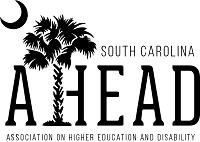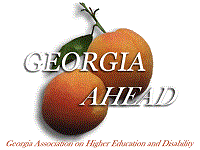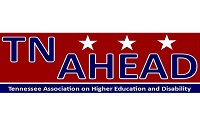Location
DiGiorgio Campus Center 222
Description
Abruptly, from a nearby spot a voice speaks...
“Studies into effective note-taking strategies all concur that students should independently CAPTURE, ORGANIZE, and TRANSFORM their notes.
“This research is not to be taken lightly! Support professionals: ask yourself whether they cast doubt on the value of traditional forms of note-taking support! Shouldn’t ALL students be given the POWER! to take notes for themselves?”
Moments later… strange diagrams on a projector screen highlight the connection between effective note-taking strategies and the mysterious science of memory.
The voice again.
“Doubtless, the very act of taking notes is key to understanding and remembering new subject material. So what implications for the student whose notes are taken by somebody else?”
Meanwhile... at top schools across the country, support professionals are looking again at whether providing students with a peer notetaker creates a STRENGTH-SAPPING culture of dependence. Transition, retention, and GPA could all be taking the hit!
Then, back in the room, a demonstration...
MESMERIZED... you discover how the latest digital note-taking technology POWERS UP students with disabilities to take richly-detailed notes with minimal support.
BEDAZZLED... you hear about two- and four-year institutions who have added this software to their support toolkit, and the impact it has had on GPA, note-taking spend, and administration.
STUNNED... you hear how the software has helped students take notes INDEPENDENTLY, breaking down barriers to learning that have stood for as long as anyone can remember.
Inspired, you decide it’s time to act!
Aimed at all professionals tasked with providing AT and creating accessibility, after this session you’ll be able to:
- Identify what makes an effective note-taking strategy - Identify the strengths and weaknesses of traditional note-taking accommodations - Identify how digital note-taking technology can positively impact GPA, transition and retention, and reduce administration
Included in
Note-Taking Support: Giving more POWER to the student
DiGiorgio Campus Center 222
Abruptly, from a nearby spot a voice speaks...
“Studies into effective note-taking strategies all concur that students should independently CAPTURE, ORGANIZE, and TRANSFORM their notes.
“This research is not to be taken lightly! Support professionals: ask yourself whether they cast doubt on the value of traditional forms of note-taking support! Shouldn’t ALL students be given the POWER! to take notes for themselves?”
Moments later… strange diagrams on a projector screen highlight the connection between effective note-taking strategies and the mysterious science of memory.
The voice again.
“Doubtless, the very act of taking notes is key to understanding and remembering new subject material. So what implications for the student whose notes are taken by somebody else?”
Meanwhile... at top schools across the country, support professionals are looking again at whether providing students with a peer notetaker creates a STRENGTH-SAPPING culture of dependence. Transition, retention, and GPA could all be taking the hit!
Then, back in the room, a demonstration...
MESMERIZED... you discover how the latest digital note-taking technology POWERS UP students with disabilities to take richly-detailed notes with minimal support.
BEDAZZLED... you hear about two- and four-year institutions who have added this software to their support toolkit, and the impact it has had on GPA, note-taking spend, and administration.
STUNNED... you hear how the software has helped students take notes INDEPENDENTLY, breaking down barriers to learning that have stood for as long as anyone can remember.
Inspired, you decide it’s time to act!
Aimed at all professionals tasked with providing AT and creating accessibility, after this session you’ll be able to:
- Identify what makes an effective note-taking strategy - Identify the strengths and weaknesses of traditional note-taking accommodations - Identify how digital note-taking technology can positively impact GPA, transition and retention, and reduce administration









Comments
Dave Tucker, CEO, Sonocent.